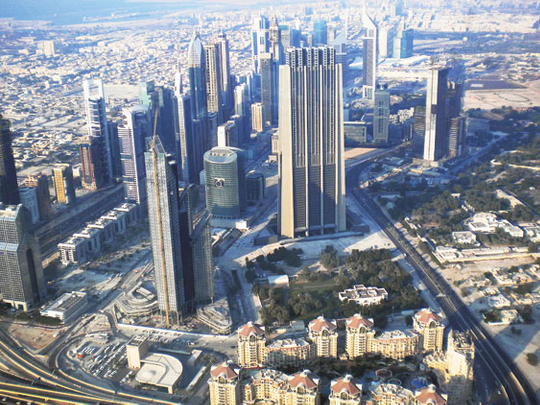
Dubai: The combined debt maturities of Government of Dubai and the government-related entities (GREs) for next year is estimated at $18 billion (Dh66.20 billion) and the emirate has ample options to meet its obligations on time, said economists of Standard Chartered on Sunday.
"We estimate the total debt maturities of sovereign and quasi-sovereign entities of Dubai at $18 billion. With the most challenging of the debt issues restructured, we expect the government and the GREs to manage the debt maturities through market funding sources," said Shady Shaher, an economist with Standard Chartered in Dubai.
Healthy demand
Standard Chartered economists said recent debt issues by the Dubai government and entities suggest that there is healthy demand for Dubai debt in the international market.
"There has been healthy appetite for bond issues from Dubai. Thus most of the maturities are likely to be met through capital market funding," said Philippe Dauba-Pantanacce, senior economist for the Middle East North Africa at Standard Chartered.
The economists did not rule out debt restructuring of a few more GREs. However, they said with a combination of debt capital market fund raising and equity sales by a few of the successful government-owned businesses, Dubai can manage its debt obligations.
Presenting its global economic outlook, Standard Chartered economists said Dubai's economy is expected to bounce back to grow 4 per cent next year. Dubai's economy is projected to grow between 1.5 to 2 per cent this year.
The bank said that despite the slowdown in the real estate sector, the emirate's economy has been recovering on the back of growth in trade and hospitality.
Significant rebound
"2010 saw a significant rebound in global trade; this, along with rapid growth in the retail and hospitality sectors drove Dubai's recovery despite the challenges of a suppressed housing market and debt overhang," said Shaher.
The UAE economy is projected to grow 4 per cent next year and Abu Dhabi is expected to grow 5 per cent, the Standard Chartered outlook said.
Economists say the UAE economy is poised for strong credit growth next year. UAE credit growth was weak throughout 2010. A key reason for this is that bank loans still exceed deposits.
Increased deposits
The gap narrowed from Dh47.1 billion in January 2010 to Dh25.5 billion in September, but this was the result of increased deposits and flat credit growth.
"Credit conditions should begin to improve moderately in 2011 on the back of the economic recovery and improving market sentiment following Dubai's planned debt restructuring," said Shaher.
The UAE's private sector credit is projected to grow 9.4 per cent in 2011 against low single-digit credit growth in 2009 and 2010, Credit Suisse said last week.
"The outlook [for private sector credit] has brightened thanks to the recent progress on Dubai World's debt restructuring. We think credit growth should accelerate to 9.4 per cent in 2011," said Jacqueline Madu, an analyst with Credit Suisse.












